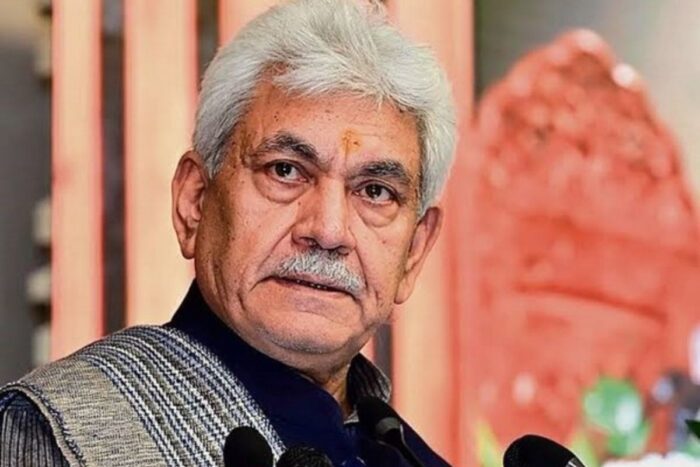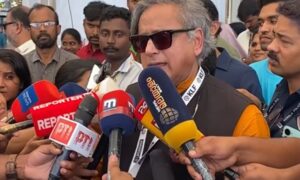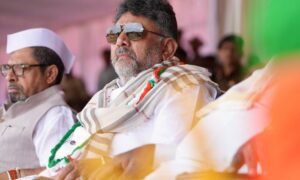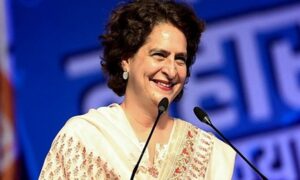
File Picture
The Centre has significantly strengthened the authority of the lieutenant governor in Jammu and Kashmir, empowering him to make decisions on crucial matters such as police, and all-India services officers and granting sanctions for prosecution in various cases.
The Union Home Ministry gave more powers to the L-G on Friday by amending rules framed under the Jammu and Kashmir Reorganisation Act, 2019. This act, passed alongside the abrogation of Article 370, bifurcated the erstwhile state into two Union Territories — Jammu and Kashmir and Ladakh.
In the past, proposals concerning police, public order, all-India services and the Anti-Corruption Bureau required approval from the finance department of Jammu and Kashmir before reaching the L-G.
Under the revised rules, such proposals must now be presented directly to the L-G through the chief secretary of the Union territory.
Reacting to this order, NC Vice President Omar Abdullah raised concerns about the implications of having a “powerless and rubber stamp” chief minister who would need the L-G’s approval even for minor appointments.
Despite acknowledging the timing of the decision in relation to upcoming elections, Abdullah emphasised the importance of a clear commitment towards restoring full statehood of Jammu and Kashmir.
“This is why a firm commitment to laying out the timeline for restoration of full and undiluted statehood for Jammu and Kashmir is a prerequisite for these polls.
“The people of Jammu and Kashmir deserve better than a powerless and rubber stamp CM who will have to beg the L-G to get his/her peon appointed,” the NC vice president said.
Congress general secretary Jairam Ramesh remarked that the increased powers given to the Jammu and Kashmir L-G suggested a dim outlook for the restoration of a full-fledged statehood in the near future.
In a post on ‘X’, he said, “The only meaning that can be drawn from this notification is that full-fledged statehood for Jammu and Kashmir does not seem likely in the immediate future.”
Another indicator that elections are around the corner in J&K. This is why a firm commitment laying out the timeline for restoration of full, undiluted statehood for J&K is a prerequisite for these elections. The people of J&K deserve better than powerless, rubber stamp CM who… https://t.co/THvouV1TxF
— Omar Abdullah (@OmarAbdullah) July 13, 2024
He said there has been a consensus across political parties that Jammu and Kashmir must immediately become a full-fledged state of the Indian Union once again.
“The self-anointed non-biological PM is on record saying that full-fledged statehood would be restored to Jammu and Kashmir, which had been reduced to a Union Territory in August 2019,” Ramesh said.
The Supreme Court had mandated that elections to the J&K Assembly should be held by Sept 30th, 2024.
The self-anointed non-biological PM is on record saying that full-fledged statehood would be restored to J&K, which had been reduced to a Union Territory in August 2019.
Last… pic.twitter.com/q8qHbThgFo
— Jairam Ramesh (@Jairam_Ramesh) July 13, 2024
PDP chief Mehbooba Mufti’s daughter and media advisor Iltija Mufti highlighted the perceived agenda behind the decision, suggesting that it aimed at limiting the powers of any future elected government in the region.
“The order seeks to disempower the powers of the next Jammu and Kashmir state government only because the BJP doesn’t want to cede control or lose its iron grip over Kashmiris. Statehood is out of the question. An elected government in Jammu and Kashmir will be reduced to a municipality,” she said.
She raised concerns about the potential impact of the Union government’s decision on the upcoming assembly elections and the Centre’s reluctance to relinquish control in Jammu and Kashmir.
[the_ad id=”55723″]


















